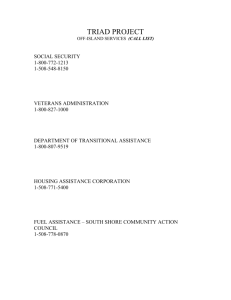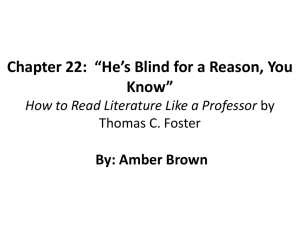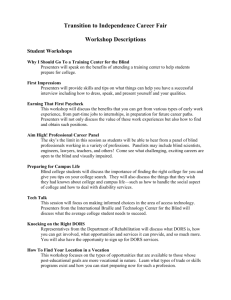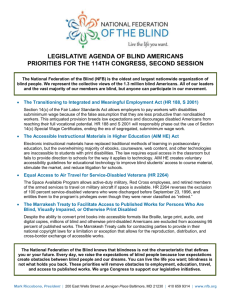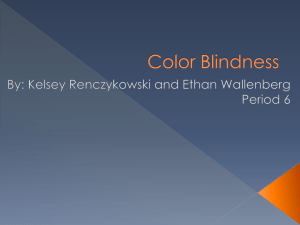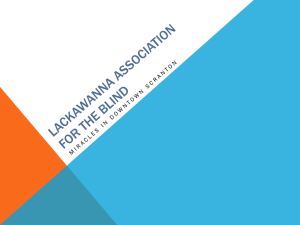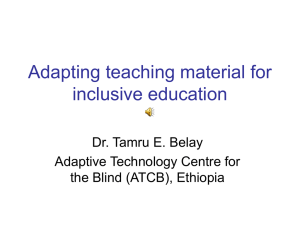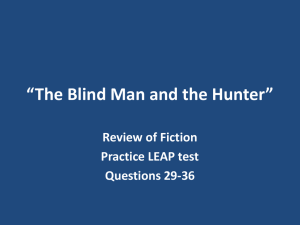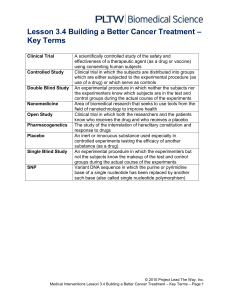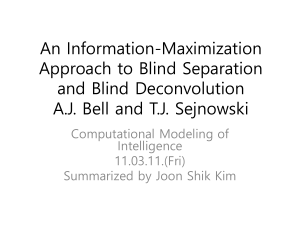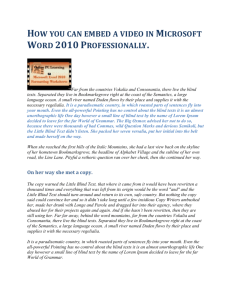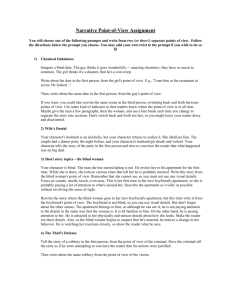Mobile App for Face Recognition
advertisement
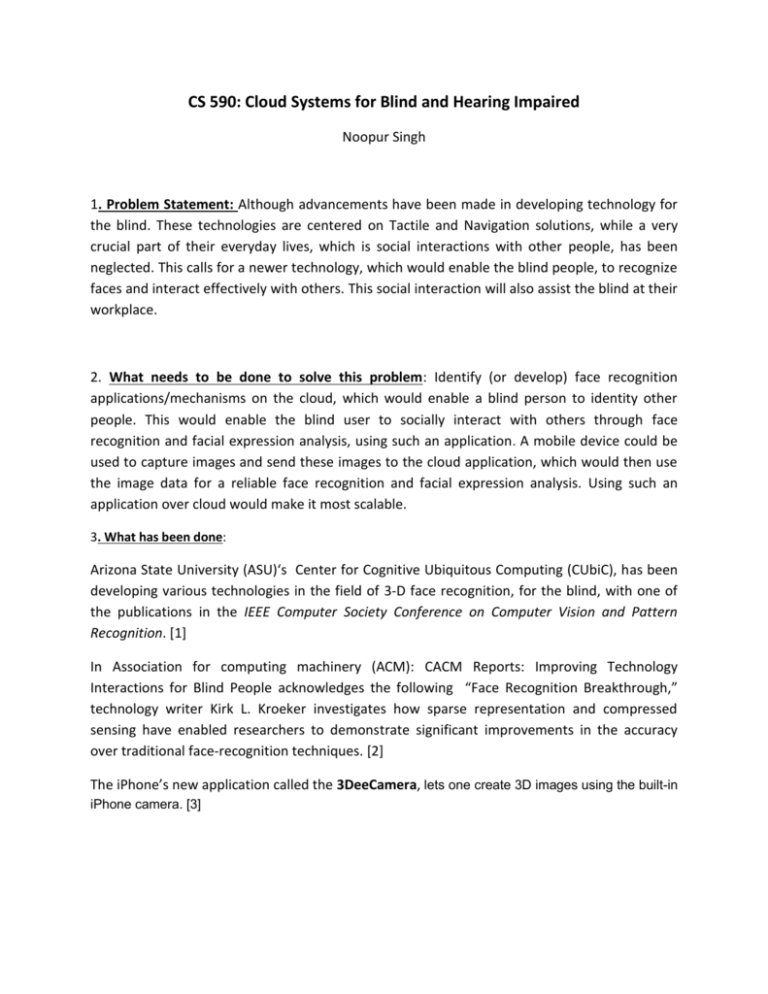
CS 590: Cloud Systems for Blind and Hearing Impaired Noopur Singh 1. Problem Statement: Although advancements have been made in developing technology for the blind. These technologies are centered on Tactile and Navigation solutions, while a very crucial part of their everyday lives, which is social interactions with other people, has been neglected. This calls for a newer technology, which would enable the blind people, to recognize faces and interact effectively with others. This social interaction will also assist the blind at their workplace. 2. What needs to be done to solve this problem: Identify (or develop) face recognition applications/mechanisms on the cloud, which would enable a blind person to identity other people. This would enable the blind user to socially interact with others through face recognition and facial expression analysis, using such an application . A mobile device could be used to capture images and send these images to the cloud application, which would then use the image data for a reliable face recognition and facial expression analysis. Using such an application over cloud would make it most scalable. 3. What has been done: Arizona State University (ASU)‘s Center for Cognitive Ubiquitous Computing (CUbiC), has been developing various technologies in the field of 3-D face recognition, for the blind, with one of the publications in the IEEE Computer Society Conference on Computer Vision and Pattern Recognition. [1] In Association for computing machinery (ACM): CACM Reports: Improving Technology Interactions for Blind People acknowledges the following “Face Recognition Breakthrough,” technology writer Kirk L. Kroeker investigates how sparse representation and compressed sensing have enabled researchers to demonstrate significant improvements in the accuracy over traditional face-recognition techniques. [2] The iPhone’s new application called the 3DeeCamera, lets one create 3D images using the built-in iPhone camera. [3] 4. What can be done: The knowledge from the already existing technology and research could be used to identify (develop) applications which could perform the face recognition for the blind, using a mobile phone device. Such an identified (developed0 applications should be present in the cloud or be able to be hosted using the cloud, to make it scalable. 5. What I have done: I have begun reviewing research papers related to the use of reliable face recognition mechanisms and such software’s and applications. I am also looking at the technology used in iPhones for creating the 3D images. References: [1] Arizona State University, CENTER HTTP://CUBIC.ASU.EDU/PROJECTS/INDEX.PHP FOR COGNITIVE UBIQUITOUS COMPUTING [2] Communications of the ACM, A Blind Person's Interaction with Technology, August 2009 (Vol. 52, No. 8) http://www.acm.org/press-room/news-releases/cacm-reports-0908/ [3] Five 3D applications for the iPhone, http://www.readwriteweb.com/archives/five_3d_applications_for_the_iphone.php
